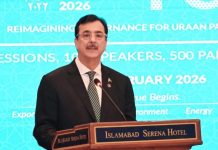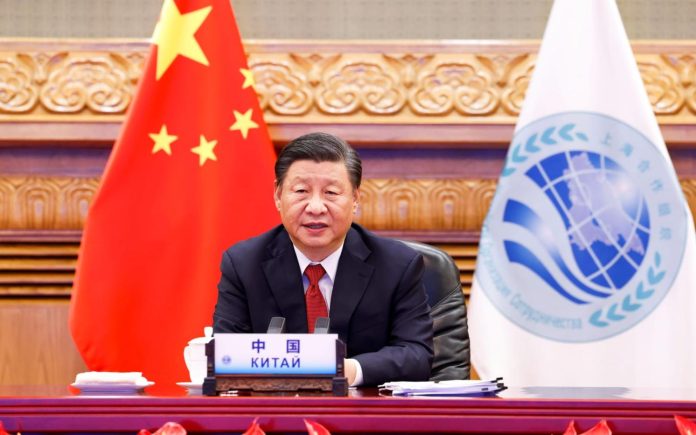
Dr. Syed Mehboob
Senior Business and Political Analyst
http//: www.thenewslark.com
Email:drmehboob.thenewslark@gmail.com
War, violence, extremism, terrorism, and economic inequality are enemies of peace and humanity. The unipolar world had brought a lot of bloodshed and millions of losses of human lives. In Gaza alone, more than 50,000 children have been killed,with an average of 80 children per day. Gaza is facing the worst kind of genocide, extreme food crisis, and starvation of millions of people. The great majority of the world wants peace, but the abuse of power, blatant use of veto by a world power in favor of an aggressor, is a major hindrance to peace and a ceasefire. The world needs peace and balance of power. The world is moving towards multipolar and power is shifting from the West to the East, and China has emerged as the GLOBAL LEADER OF PEACE AND DEVELOPMENT. The Shanghai Cooperation Summit 2025 in China sent serious signals of global change, and this change is for peace and development, a positive one, a great ray of hope.
On a historic afternoon of 1st September 2025, at the city of Tianjin, the Shanghai Cooperation (SCO) plus meeting was held at the Tianjin Meijing Convention and Exhibition Centre, and the great visionary leader of China, Mr. Xi Jinping, presided over this meeting. The whole world had eyes on this meeting, and the majority of the world’s 8 billion people have pinned a great hope on this summit and were eager to know the outcome of this meeting. President Xi Jinping delivered a very important statement titled” Pooling the Strength of the Shanghai Cooperation Organization (SCO) to Improve Global Governance.” President Xi Jinping pointed out that 2025 marks the 80th anniversary of the victory of the World Anti-Fascist War and the founding of the United Nations Organization (UNO). According to him, it is a milestone for promoting to remembering the past and creating a better future together. He drew the attention of the participant that eighty years ago, the international community learned a profound lesson from the scourge of two world wars and founded the United Nations Organization (UNO), and wrote a new page in global governance. Eighty years later, the world has found itself in a new period of turbulence and transformation, and global governance has come to a new crossroads. History tells us that at difficult times, we must uphold our original commitment to peaceful coexistence, strengthen our confidence in win-win cooperation, advance in line with the trend of history, and thrive in keeping pace with the times. China will work with all countries for a more just and equitable global governance system and advance toward a community with a shared future for humanity. On this historical occasion, President Xi Jinping has shared his vision of the Global Governance Initiative(GGI). First, adhering to sovereign equality. It should be maintained that all countries, regardless of size, strength, and wealth, are equal participants, decision-makers, and beneficiaries in global governance. Efforts should be made to promote greater democracy in international relations and increase the representation and voice of developing countries.
Second, abiding by the international rule of law. The purposes and principles of the U.N. Charter and other universally recognized basic norms of international relations must be observed comprehensively, fully, and in their entirety. International law and rules should be applied equally and uniformly. There should be no double standards, and the house rules of a few countries must not be imposed upon others.
Third, practicing multilateralism. It is important to uphold the vision of global governance featuring extensive consultation and joint contribution for shared benefit, strengthen solidarity and coordination, oppose unilateralism, firmly safeguard the status and authority of the U.N., and ensure its irreplaceable, key role in global governance.
Fourth, advocating the people-centered approach. The global governance system should be reformed and improved to ensure that the people of every nation are the actors,systematic, and beneficiaries of global governance, to better tackle the common challenges for mankind, better narrow the North-South gap, and better safeguard the common interests of all countries.
Fifth, focusing on taking real actions. It is important to adopt a systematic and holistic approach, coordinate global actions, fully mobilize various resources, strive for more visible outcomes, and enhance practical cooperation to prevent the governance system from lagging behind or being fragmented.
President Xi stressed that the founding declaration and the Charter of the SCO made it clear at the outset that the member states should promote a more democratic, just, and equitable international political and economic order. Over the past 24 years, the SCO has adhered faithfully to the Shanghai Spirit of mutual trust, mutual benefit, equality, consultation, respect for diversity of civilizations, and pursuit of common development. Regional affairs have been discussed together, platforms and mechanisms built together, and cooperation benefits enjoyed together. Many new global governance concepts have been initiated and put into practice. The SCO has increasingly become a catalyst for the development and reform of the global governance system. In response to the once-in-a-century transformations unfolding faster across the world, the SCO should step up to play a leading role, contribute to safeguarding world peace and stability, take the responsibility for open cooperation across the globe, provide a model for championing the common values of humanity, act to defend international fairness and justice, and set an example in carrying out the GGI.
President Xi concluded his statement by emphasizing that China is ready, together with all parties, to uphold courageously the great principle and the common good of the world, promote a correct historical perspective on World War II, resolutely safeguard the fruits of their victory in the War, and deliver more benefits to the entire humanity through the reform of the global governance system and the building of a community with a shared future for humanity.
The meeting was attended by leaders of SCO member states: Belarusian President Aleksandr Lukashenko, Iranian President Masoud Pezeshkian, Kazakh President Kassym-Jomart Tokayev, Kyrgyz President Sadyr Japarov, Pakistani Prime Minister Shehbaz Sharif, Russian President Vladimir Putin, Tajik President Emomali Rahmon, Uzbek President ShavkatMirziyoyev, Indian Prime Minister Narendra Modi, leader of SCO observer state: Mongolian President KhurelsukhUkhnaa; leaders of SCO dialogue partners: Azerbaijani President Ilham Aliyev, Armenia Prime Minister NikolPashinyan, Cambodian Prime Minister Hun Manet, General Secretary of the Lao People’s Revolutionary Party Central Committee and President of Laos ThonglounSisoulith, Maldivian President Mohamed Muizzu, Myanmar’s Acting President Min Aung Hlaing, Nepali Prime Minister K. P. Sharma Oli, Turkish President Recep Tayyip Erdoğan, and Egyptian Prime Minister Mostafa Madbouly; leaders of the guest countries of the Chair: Turkmen President Serdar Berdimuhamedov, Malaysian Prime Minister Anwar Ibrahim, Vietnamese Prime Minister Pham Minh Chinh, and the representative of the President of Indonesia. Also present at the meeting were U.N. Secretary General António Guterres, the heads of the SCO’s permanent bodies, and leaders of other international organizations and multilateral mechanisms.
The parties spoke highly of and expressed strong support for the GGI proposed by President Xi. They noted that as the global governance deficit is widening, sustainable development faces challenges, unilateralism is on the rise, and the authority of the U.N. and international norms is under strain, the world is in urgent need of more effective governance concepts and systems. On the occasion of the 80th anniversaries of the victory of World War II and the founding of the U.N., China’s GGI proposal is both timely and necessary. This initiative rejects the logic of power politics, supports the U.N.’s central role, and advocates for shared development, joint governance, and mutual benefit, offering Chinese wisdom and proposals to address the urgent challenges facing the world today. The successful practice of the Shanghai Spirit within the SCO fully demonstrates that different countries can indeed respect each other, build mutual trust, and pursue win-win cooperation, setting a model for improving global governance. The parties agreed to enhance communication and coordination, deepen cooperation in trade, investment, innovation, industry, and agriculture, jointly combat terrorism, drug trafficking, and cybercrimes, and bring their peoples closer together through stronger people-to-people and cultural exchanges, thereby further increasing the SCO’s influence and contributing to global peace, development, and progress.
( To be continued)

























